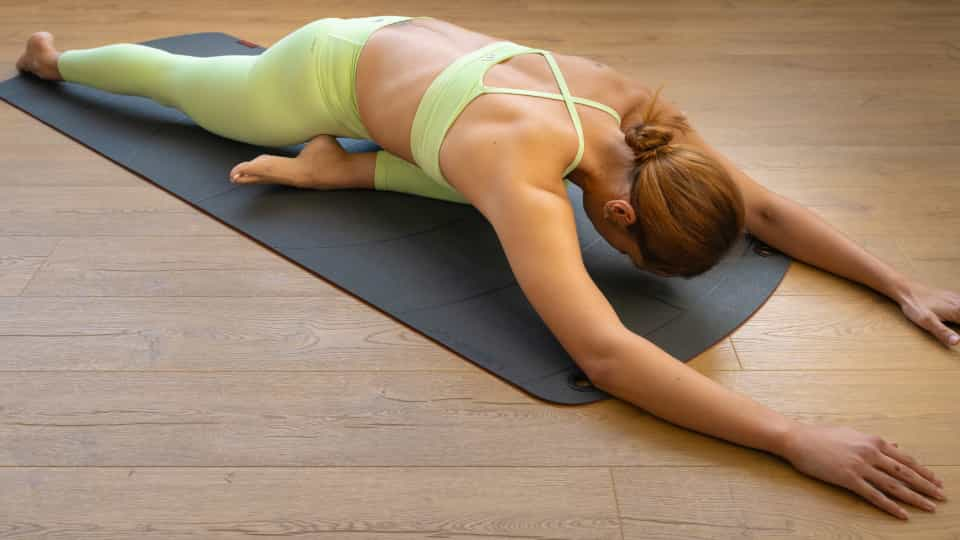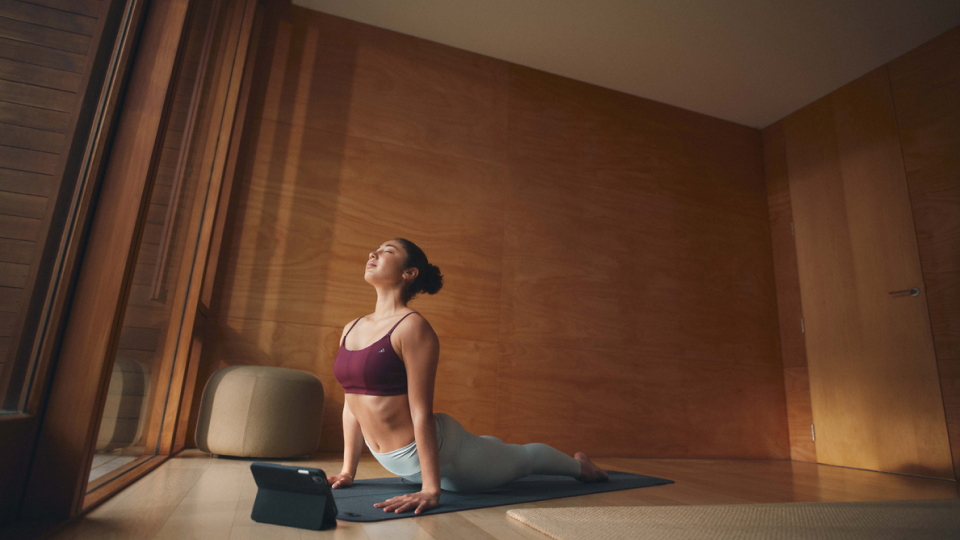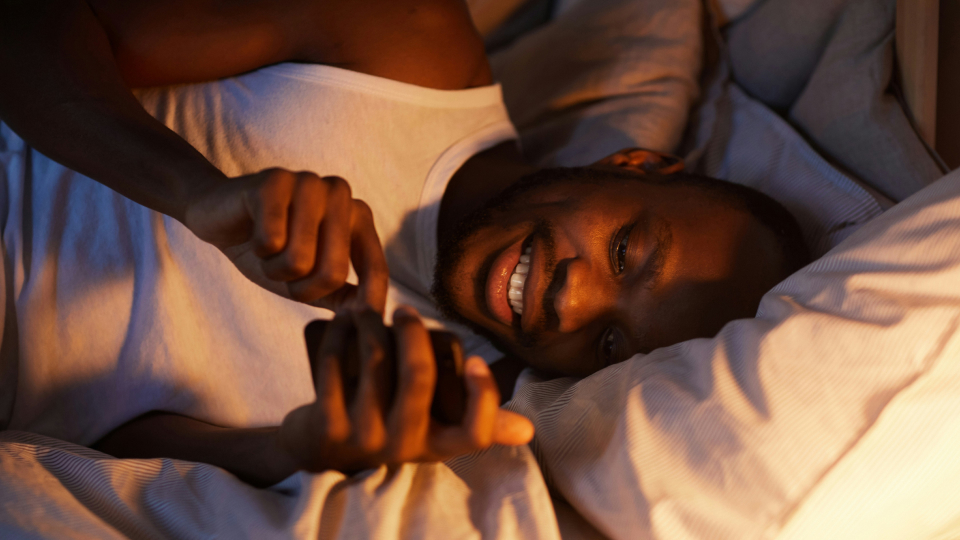For many of us, busy schedules mean squeezing in an evening exercise session is the only way to go. Which is not a bad thing. Wrapping up the day with exercise is known to be particularly rewarding (and some evidence even suggests it can stimulate more powerful results). But it becomes an issue if the energizing exercise buzz starts to interfere with precious recovery sleep.
Ensuring good sleep health is vital for any exerciser, as Dr. Meeta Singh, Service Chief of Sleep Medicine and Medical Director at the Henry Ford Sleep Laboratory in Michigan, points out: “Sleep is essential for all aspects of athletic performance. This includes optimal reaction times, accuracy, optimal motor function, focus, motivation, glucose metabolism, memory and learning, as well as stress regulation – all of which are integral for performance.”
Want to delve deeper into how lack of sleep can sabotage your fitness? Learn more from Dr Meeta Singh.
Why we feel wired after a workout
This phenomenon occurs due to several physiological changes in our body. When we train, a series of biological events put our bodies on high alert:
- Hormonal Surge: Physical activity stimulates the release of endorphins and catecholamines, such as adrenaline and noradrenaline. These increase heart rate and energy levels, contributing to heightened alertness.
- Elevated Core Temperature: Exercise raises body temperature, signaling to the body that it's time to be awake and alert.
- Cortisol Disruption: During intense physical activity, cortisol is released as part of the body’s "fight or flight" response. It breaks down muscle protein for amino acids, which can be converted into energy.
- Psychological Stimulation: It's not just high-energy cardio that leaves you buzzing. Even calmer activities can be stimulating when they're teamed with the lights, music, and social interactions that go hand-in-hand with the gym.

So, what can we do about it?
If evening exercise is a regular part of your routine here are five top tips to speed up your travel to dreamland.
-
Stretch before slumber
Research has shown that a pre-bedtime stretching and meditation session can improve sleep. A study led by Dr. Jinger Gottschall and Bryce Hastings found participants who completed a 20-30 minute sequence of BODYBALANCE™ based stretches followed by a 10-minute meditation, three evenings a week for just two weeks, experienced significant improvements.
Compared to the control group, those who practiced the stretches and meditation reported:
- Improved heart rate variability (HRV), a measure of nervous system recovery patterns
- Reduced anxiety and tension
- Better sleep quality
Learn more about the benefits of yoga before bed.

-
Cool down after your cooldown
A recent study found lowering bedroom temperature resulted in subjects reaching Non-REM Sleep Stage 2 faster, a part of the sleep cycle that helps the body repair tissues, build bone and muscle, and strengthen its immune system.
In the hot summer months, ensure your duvet is a seasonally appropriate tog. If budget allows, consider a gel-based cooling pillow and use cotton or linen sheets. A fan can circulate the air with the added benefit of sleep-inducing white noise.

-
Your mobile bedfellow
A global survey by IKEA involving 55,000 participants found that 72% of people use their phones in bed. While it's not ideal sleep hygiene, let's be real – I know no one is taking my phone away at night!
If you must use your phone, try your sleep-friendly settings. Android users can activate ‘Bedtime Mode’ to dim the wallpaper, switch to black and white, and silence notifications. iPhone users can use ‘Wind Down’ and ‘Sleep Focus’ for built-in sleep tools. If you sleep with a partner, SleepPhones offer a comfortable way to listen to content without disturbing them.
There are many relaxing videos to choose from on YouTube, from ASMR to soundscapes. There you can also find tutorials on breathing techniques, such as 4-7-8 breathing and box breathing.
Discover a collection of mindfulness, meditation and breathwork sessions available on LES MILLS+.
-
Consider when you eat
We all know eating late isn’t ideal for sleep, but if a busy schedule means you can’t squeeze in an early meal, it can make getting adequate fuel a little tricky.
Research suggests eating or drinking 4-6 hours before bedtime increases the likelihood of optimal sleep duration. If possible, have your main meal earlier in the day – ideally at lunch. Post-class, choose a high-protein snack over carb-heavy meals to avoid glucose spikes that can disrupt sleep.
Studies show a high-protein snack is effective in curbing the postprandial glucose excursion (the rise and fall of blood sugar after eating) observed with night eating by 71.4%.
Nutrients rich in tryptophan (a precursor to melatonin – the hormone that regulates sleep) can be beneficial too. Tryptophan-rich foods include cheese, turkey, eggs, fish, sesame seeds, milk, and peanuts.
-
Don't fight it!
If you're lying in bed stressing about not falling asleep, take positive action. If you’re still awake after 20 minutes, get up and do something boring – like folding laundry or organizing your inbox. Once tiredness creeps in, you can return to bed with a sense of accomplishment.
Another effective strategy is gratitude journaling. Writing down three good things that happened during the day has been linked to improved sleep quality and fewer disturbances.
Good night!
Should you sleep with the light on? Find out how to get the most restorative slumber here.
Learn how strength training can add up to 40 more minutes of sleep. Plus, to improve sleep quality, learn when to snooze and when to sweat, understand how sleep can impact your weight and much more.
This article originally appeared at: www.lesmills.com/instructors/instructor-news/wired-after-teaching-a-workout/








